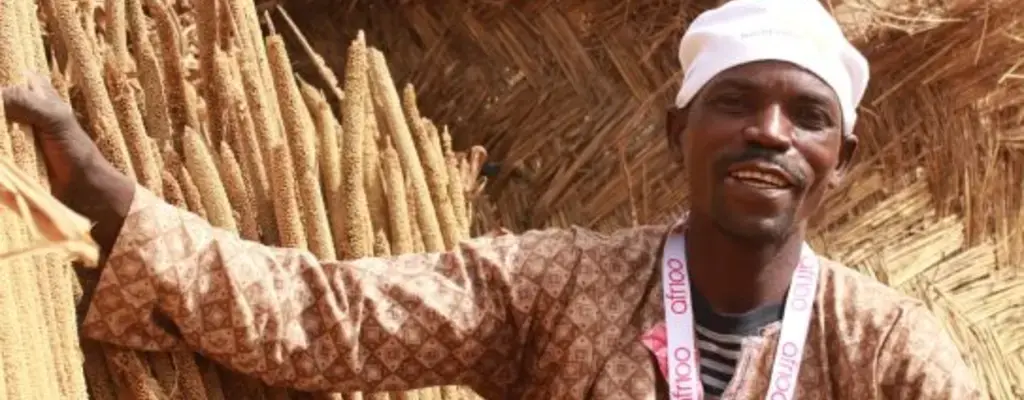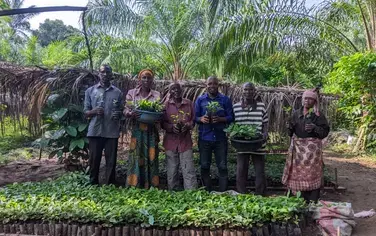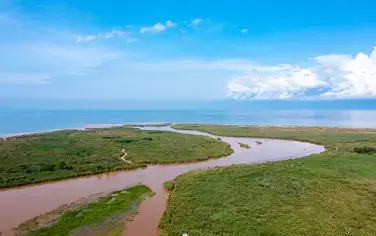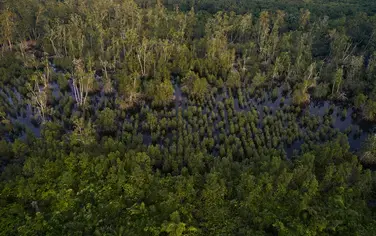This blog was originally published by Farming First in June 2018. Read the original here. Barrett Alexander, Program Manager for Food Security and Livelihoods at World Vision, explains how Farmer Managed Natural Regeneration can help empower farmers and boost crop yields in the Sahel.
In Niger, the encroaching Sahel is a daily constraint for farmers – the wind, sand, dust, soil degradation, water scarcity, and recurring drought make it hard for farmers to provide for their families.
In the northeastern part of Niger, in the Maradi Region, World Vision works with local farmers on Farmer Managed Natural Regeneration (FMNR) to combat the encroaching Sahel. FMNR is part agro-forestry, part environmental conservation, part Disaster Risk Reduction, and part economic driver. It works by finding indigenous tree species, once abundant in Niger but decimated by drought and human population pressure in the 1970s and 80s, and teaching farmers about pruning methodologies to allow those trees to regrow. The regrowth of the trees has shown to reduce surface wind speeds, increase soil fertility, increase ground water availability, increase yields, and reduce surface temperatures.
Since the inception of FMNR in the 1980s, its growth throughout the country cannot be understated. Currently, there is roughly 5 million hectares of land re-greened through FMNR, with approximately 200 million indigenous trees. In some of World Vision’s project sites, there is a 250 percent increase in tree/shrub density on FMNR sites and the average tree density increased from 35.57 trees per hectare in 2014 to 123 trees per hectare in 2017. This increase in density is helping farmers increase their staple crop production, primarily millet, by 58 percent due to soil revitalization, increased ground water availability, reduced wind speeds that take top soil away, and reduced surface temperatures in this very arid environment.
Champion Farmer Model
One farmer stands out among the rest – Yaouza Harouna. After incorporating FMNR on his 4.5-hectare rain-fed and 0.5-hectare irrigated land in 2013, he now can fully provide for his family. Yaouza has re-grown roughly 310 new trees, including 60 Sahel apple trees. By implementing FMNR, Yaouza increased the productive capacity of his land and became a sustainable farmer. In the Guidan-Roumdji district where he lives, the average millet yield is 547 kg/hectare,—he produced 937 kg/hectare by planting nearest the bases of his trees. He also produced 450 kgs of peanuts, 250 kgs of cowpeas, 375 kgs of sorghum, 2,000 watermelons, and 833 kgs of Sahel apples from his new trees.
All of this production provided Yaouza and his family with approximately $2,534 in income generation on the staple crops and $943 in income for the Sahel apples. Furthermore, roughly 70 percent of the millet and sorghum were used for direct consumption and to provide food for his extended family. With all this income, Yaouza has provided his household with sustainable food and firewood provision, put his children in private school, supported relatives, branched out into more income generating activities (small trading, sheep fattening), purchased a motorbike, extended his land by two hectares, and employed a local man to help watch the land and tend the crops. In effect, our Champion Farmer, based on initial interest in FMNR, has rightfully gained his moniker.
Recommendations for FMNR Implementation
Based on the current trend of FMNR as a sustainable agriculture model and the usage of World Vision’s Champion Farmer Model, there are several recommendations for agriculture implementers.
The first, is engaging the community at the start. A deep explanation of FMNR, the requirements (including community by-laws and enforcement mechanisms), economic benefits, and social cohesion should be the first actions for new implementers
Next, it is important to identify key community actors that will take on promoting FMNR in the community and use their skills, land, and leadership in the community to become “Champion Farmers” like Yaouza. Farmers learn best and incorporate new practices when they see and learn it from other farmers – use this to your advantage and encourage the free exchange of information and site visits between your Champion Farmers and new, doubtful farmers.
For more information on how to implement FMNR initiatives, you can visit World Vision’s FMNR Hub for training resources, research, and technical guidance: http://fmnrhub.com.au/




